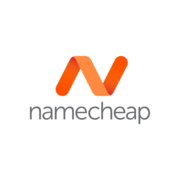The Best Web Hosting Services of 2024


When talking about the right web hosting provider, people often think about pricing and ease of use. But in reality, a lot more should go into their decision.
Do you know how many sites get hacked in a day? Internet Live Stats puts the number in the thousands. And terrible web hosting providers are partly to blame for it. When businesses get hacked, it can lead to customers losing confidence in the brand. Ultimately, that’ll mean fewer sales.
That’s why choosing the right web hosting partner is important. But with thousands of options available, how do you know which one is right for you?
We’ve compiled a list of the best web hosting services to help you with your decision. Whether you’re starting a blog, an online store, local business, or enterprise brand, we’ll help you pick the best host and save money in the process.
Let’s get started.
What Makes a Web Hosting Provider Great?
Price is the biggest concern for most folks. But let’s put that aside for the moment. What other factors should you prioritize first?
Answer:
You want web hosting providers that have fast servers, offer outstanding customer support, and incredible security. Next, you’d want to think about the kind of services they provide and if their interface is user-friendly.
Some companies offer all of these but some fall short. Not all web hosting solutions are the same. Finding a web host with the right balance is the key.
What is the Best Web Hosting?
Note: All pricing details mentioned below are current as of July 2021. All plans renew at slightly higher rates.
Here are our recommended web hosting services for 2021:
1. Bluehost
Best Overall Web Hosting Service ($2.95/month)

Bluehost is a well-known company and is the first choice for anyone looking for a reputable web host provider. It’s well-balanced as far as features go. And its interface is so easy to use, even a beginner should have no problem using it.
Its affordable pricing, advanced hosting options, digital marketing and design services, amazing uptime, and clean cPanel make it our choice for the best web hosting service out of all entries in this list.
Key Features
- Comes with free domain
- Secure sockets layer (SSL) certification
- 1-click WordPress installation
- 24/7 support
- 30-day money-back guarantee
- Cloud, Virtual Private Server (VPS), and Shared Hosting plans
- In-house analytics
- WordPress-recommended
Pricing
- Shared Hosting — $3.95/month (Basic), $5.95/month (Plus), $6.95/month (Choice Plus), $13.95/month (Pro)
- Managed WordPress — $19.95/month (Build), $29.95/month (Grow), $49.95/month (Scale)
- Next-Gen VPS Hosting — $19.99/month (Standard), $29.99/month (Enhanced), $59.99/month (Ultimate)
- Dedicated Hosting — $79.99/month (Standard), $99.99/month (Enhanced), $119.99/month (Premium)
…or check out our Bluehost Review
2. Hostinger

Most Affordable Web Host (only $1.99/month)

With plans starting at slightly more than a dollar, Hostinger is the ideal choice for anyone looking to build a site for cheap. And because of its cache manager feature, you can expect sites to load fast as well.
Other features include a 1-click installer, PHP7 support, and WordPress optimization. You’re also able to customize your dashboard to really make it your own. If you’re looking for great value, Hostinger is the web host you’re looking for.
Key Features
- Host up to 100 websites*
- Free email accounts under your domain**
- SSL certification
- Google Ads credit*
- Unlimited bandwidth*
- Managed WordPress
- 30-day money-back guarantee
- Unlimited databases*
- 24/7 customer support
- 99.9% uptime guarantee
- Unlimited FTP account
*Does not apply to Single Shared Hosting plan
**Get only 1 free email on the Single Shared Hosting plan
Pricing
- Web Hosting — $1.39/month (Single Shared Hosting), $1.99/month (Premium Shared Hosting), $3.99/month (Business Shared Hosting)
- Cloud Hosting — $9.99/month (Cloud Startup), $18.99/month (Cloud Professional), $69.99/month (Cloud Global)
- WordPress Hosting — $1.99/month (Single WordPress), $3.99/month (WordPress Starter), $6.99/month (Business WordPress), $11.59/month (WordPress Pro)
- VPS Hosting — $3.95/month (VPS 1), $8.95/month (VPS 2), $12.95/month (VPS 3), $15.95/month (VPS 4), $23.95/month (VPS 5), $38.99/month (VPS 6)
…or check out our Hostinger Review
3. SiteGround

Best Customer Service among Web Hosts ($3.95/month)

Knowledgeable customer service reps are hard to find. But when you sign up for SiteGround, you can expect top-notch support that’s available 24/7. SiteGround has a great reputation thanks to its friendly customer service and web hosting security measures.
And just like Bluehost, it’s also a web hosting platform that’s recommended by WordPress.
You want to keep in mind, however, that you don’t get a free domain name when you register. That could be a dealbreaker for some folks.
Key Features
- Unlimited websites*
- Unmetered traffic
- SSL certification
- Daily backup
- Free Content Delivery Network (CDN)
- Free email
- Managed WordPress
- Unlimited databases
- 100% renewable energy match
- 30-day money-back guarantee
- WooCommerce hosting
*Startup plan only has 1 website.
Pricing
- Web Hosting — $6.99/month (Startup), $9.99/month (GrowBig), $14.99/month (GoGeek)
- WordPress Hosting — $6.99/month (Startup), $9.99/month (GrowBig), $14.99/month (GoGeek)
- WooCommerce — $6.99/month (Startup), $9.99/month (GrowBig), $14.99/month (GoGeek)
- Managed Cloud Hosting — $80/month (Entry), $120/month (Business), $160/month (Business Plus), $240/month (Super Power)
4. DreamHost

Best Web Hosting for Non-Profit Organizations ($2.59/month)

Non-profit organizations can get a free shared hosting plan which includes email hosting if they’re registered in the United States. That’s a single account per 501(c)(3) organization. If you prefer WordPress hosting, you can get a 35% discount for your organization which’s good as long as the account remains active.
The Shared Starter plan ($2.49/month) and Shared Unlimited plan ($3.95/month) aren’t that apart in terms of pricing. For roughly a dollar more, you get to build unlimited websites.
Key Features
- Free Migration from WordPress
- Free domain
- Unlimited traffic
- Pre-installed WordPress
- WP website builder
- SSD Storage
- SSL certification
- Unlimited email*
*Unavailable on Shared Starter plan
Pricing
- Shared Website Hosting — $2.59/month (Shared Starter), $4.95/month (Shared Unlimited)
- WordPress Basic — $3.95/month (WordPress Starter; billed annually), $4.95/month (WordPress Unlimited; billed annually)
- DreamPress (Managed WordPress) — $12/month (DreamPress), $24/month (DreamPress Plus), $79.95/month (DreamPress Pro)
- VPS Hosting — $13.75/month (VPS Basic; billed annually), $27.50/month (VPS Business; billed annually), $55/month (VPS Professional; billed annually), $110/month (VPS Enterprise; billed annually)
5. Cloudways

Best Cloud Hosting Solution for More Experienced Users ($10/month)

Cloud hosting (Amazon Web Services, Google Cloud) is faster and more stable than shared hosting. Cloudways is using that fact to keep its users happy by loading sites faster while keeping costs down for you.
It’s a good choice for growing online businesses because of Cloudways’ flexible hosting options and tech support. And did we mention how easy it is to set up? The pay-as-you-go plans leave you room to scale operations as needed.
Key Features
- 5 cloud providers
- Unlimited applications
- 24/7 support
- Managed security
- Built-in CDN
- Automated backups
- All PHP apps supported
- Pay-as-you-go billing
- SSL certification
Pricing
Note: The pricing tiers indicate an increase in RAM, processor/vCPU, storage, and bandwidth limitations.
- DigitalOcean — $10/month, $22/month, $42/month, $80/month
- Linode — $12/month, $24/month, $50/month, $90/month
- Vultr (Standard) — $11/month, $23/month, $44/month, $84/month
- Amazon Web Services (AWS) — $36.51/month, $86.77/month, $176.62/month, $274.33/month
- Google Cloud — $33.63/month, $75.29/month, $142.48/month, $232.80/month
6. HostGator

Great Cheap Web Hosting with a Website Builder Option ($2.78/month)

Not all web hosting services will include a website builder option. But for $3.84/month, you can use HostGator’s drag-and-drop website builder to design your website without having to learn a single line of code. And it also has your usual web hosting solutions like shared hosting and WordPress hosting.
But is it reliable? You bet it is. You can rely on its 24/7 customer support if you encounter any issue. And it has a 99.99% uptime so it’s unlikely that your site will experience any downtime.
Key Features
- Free domain
- Free site transfers
- Unmetered bandwidth
- 99.9% uptime guarantee
- SSL certification
- 24/7 customer support (phone, chat, Twitter)
Pricing
- Shared Hosting — $2.75/month (Hatchling), $3.95/month (Baby), $5.95/month (Business)
- Gator Website Builder — $3.84/month (Express Start), $5.99/month (Express Site), $9.22/month (Express Store)
- WordPress Hosting — $5.95/month (Starter), $7.95/month (Standard), $9.95/month (Business)
- VPS Hosting — $19.95/month (Snappy 2000), $29.95/month (Snappy 4000), $39.95/month (Snappy 8000)
- Dedicated Hosting — $89.98/month (Value Server), $119.89/month (Power Server), $139.99/month (Enterprise Server)
7. Kinsta

Best Premium Wordpress Hosting with Migration Support ($25/month)

Kinsta takes care of the backend management of your WordPress on your behalf. That means less work for you. And because the company uses the Google Cloud platform, you’re guaranteed to have fast servers.
Simply put: If you’re using WordPress, this is one of the best web host services you could sign up for. But there is one major drawback — the price. Kinsta can get really expensive. If you’re used to shared hosting, the price can go as much as 10x what you normally pay for. So carefully weigh your options before committing.
Key Features
- Fully managed WordPress account
- Free migration
- Daily backups
- Google Cloud platform
- Dashboard overview of managed sites
- SSL certification
- Free CDN
Pricing
Kinsta offers the same features across all plans and the only variables that influence the price are the maximum number of WordPress installs, max. number of monthly visits and available disk space.
The cheapest plans allows for 1 WordPress install, 25k visits / month and 10GB of disk space. Since Kinsta is a premium hosting there’s really no limit in terms of increasing the above as Kinsta also provides custom plans for its most demanding customers.
The exact pricing tiers go as follows:
- Starter — $30/month
- Pro — $60/month
- Business — $100/month (Business 1), $200/month (Business 2), $300/month (Business 3), $400/month (Business 4)
- Enterprise — $600/month (Enterprise 1), $900/month (Enterprise 2), $1,200/month (Enterprise 3), $1,500/month (Enterprise 4)
Also, can pay yearly on any plan and get 2 months free.
8. GreenGeeks

Best Eco-Friendly Web Hosting Provider ($2.95/month)

GreenGeeks makes it a point to put back 3 times the power they consume in the form of renewable energy. So not only are you getting a web hosting solution, but you’re also helping the environment in the process.
This company does not offer shared hosting though.
But what about its services? Are they any good? For starters, GreenGeeks use SSD storage so sites load faster. It uses LiteSpeed Cache so the read/write speed is just as impressive. It even has CDN that speeds up load time by saving a copy of your page on the server that’s closest to your customer.
Key Features
- SSD storage
- Built-in scalability
- Zero-day vulnerability fixes
- 24/7 support
- Unlimited web space
- Unlimited websites (except for Lite plan)
- SSL certification
- Free CDN
- Free domain (until the first year)
- LSCache
- 300% energy match
- 30-day money-back guarantee
Pricing
- Web Hosting — $2.95/month (Lite), $5.95/month (Pro), $11.95/month (Premium)
- WordPress Hosting — $2.95/month (Lite), $5.95/month (Pro), $11.95/month (Premium)
- Managed VPS Hosting — $39.95/month (2GB), $59.95/month (4GB), $109.95/month (8GB)
9. iPage
One Plan to Get Started

iPage offers several plans but its Web Hosting Services plan only has one. And it has everything you’ll need to get a site up and running. At just under $2 (billed 36 months), you get unlimited websites and storage. There’s also a bunch of freebies like SSL certification, a domain (up to the first year), and an email address. That’s a good deal.
But there is a catch. iPage uses vDeck Control Panel unlike most web hosting services that opt for cPanel. vDeck is a bit outdated and isn’t as popular. If you’re already used to cPanel, you might have to adjust.
Key Features
- One simple plan
- Unlimited websites
- Unlimited storage
- SSL certification
- Free email
- Website builder
- 24/7 customer support
- Scalable bandwidth
Pricing
- Web Hosting — $1.99/month (Go Plan)
- WordPress Hosting — $3.75/month (WP Starter), $6.95/month (WP Essential)
10. WP Engine

Best WordPress Managed Hosting

WP Engine is also a managed WordPress solution like Kinsta. It has an aggressive caching system which makes it faster than other web hosting services. It also offers staging environments which means you can test changes to your site before you go live.
If you’re running a small-scale operation then WP Engine might not be the right web host for you. But WordPress sites that need maximum performance will like everything that WP Engine brings to the table.
Key Features
- Genesis framework
- More than 35 StudioPress themes
- 24/7 chat support
- Staging environments
- Transferable sites
- Global CDN
- SSL certification
- SSH gateway
Pricing
- Startup — $30/month (1 site)
- Growth — $115/month (10 Sites)
- Scale — $290/month (30 Sites)
11. A2 Hosting

Best for Fast Shared Hosting

People look to A2 Hosting for its speed and reliability at low prices. You can migrate to this provider for free. And it can work with popular content management systems like WordPress, Adobe Commerce (formerly Magento), and Drupal. A2 Hosting works on Windows and Linux.
Who needs A2 Hosting? It’s perfect for anyone who needs a fast shared hosting account. It’s a good fit for new bloggers, product reviewers, and small-time content creators. Businesses should consider other types of hosting that caters to their specific needs.
Key Features
- SSD storage
- Turbo servers (for higher plans)
- Unlimited databases*
- Unlimited transfers
- SSL certification
- Hassle-free, money-back guarantee
- 24/7 customer support
- Free migration
*Startup plan only has 5 databases
Pricing
- Startup — $2.99/month
- Drive — $4.99/month
- Turbo Boost — $9.99/month
- TurboMax — $14.99/month
12. HostPapa

Best Web Hosting for Small Businesses

HostPapa is a one-stop-shop for entrepreneurs who’d like to bring their business online. Its main selling point is its online store builder but they do offer web hosting as well. It also helps that HostPapa’s prices are so affordable that smaller companies should be able to afford them.
One problem with HostPapa is that automated backups are only available on the Business Pro plan. Since businesses need to back up their files regularly, the lack of this feature on lower-tier plans could be an issue. Most web services have this feature enabled across all their plans.
Key Features
- Unlimited websites*
- Free domain registration
- Unlimited SSD storage*
- Unmetered bandwidth
- Website builder
- Free CDN
- SSL certification
- cPanel
- 24/7 support
- 30-day, money-back guarantee
*Except for Starter plan
Pricing
- Web Hosting — $4.49/month (Starter), $3.95/month (Business), $12.95/month (Business Pro)
- Managed Shared Hosting — $39.95/month
- WordPress Hosting — $3.95/month (Starter), $5.95/month (WP Business), $12.95/month (WP Business Pro)
- VPS Hosting — $19.99/month (Mercury), $59.99/month (Venus), $109.99 (Earth), $169.99/month (Mars), $249.99/month (Jupiter)
13. Liquid Web

Best Customer Service Team

Liquid Web prides itself on having the most helpful customer service team. Not only does it offer 24/7 support, but it also has a 59-second response guarantee. That means you could contact them through phone or chat and someone will be with you in under a minute. It also offers a variety of web hosting solutions so you have more to choose from.
The company also provides different resources to help its customers get started. Not only does it have a blog, but it also has a knowledge base, ebooks, white papers, case studies, and webinars. Not only do these show you how to use the product, but they also teach you how to make your site more effective.
Key Features
- 24/7 human customer support
- 59-second initial response guarantee
- Fully managed cloud and web hosting
- Free site migration
- No pageview limits
- Full server access
- Staging environment
- SSL certification
- Developer tools
- Daily backups
Pricing
- Managed WordPress — $19/month (Spark), $79/month (Maker), $109/month (Designer), $149/month (Builder), $299/month (Producer), $549/month (Executive), $999/month (Enterprise)
- Managed WooCommerce — $19/month (Starter), $79/month (Creator), $149/month (Merchant), $299/month (Standard), $549/month (Growth), $999/month (Enterprise)
There are more advanced plans available including dedicated, VPS, support of Adobe Commerce (formerly Magento), high-performance, and database web hosting.
14. Inmotion Hosting
Best for Educators and Students

Aside from its standard web hosting offerings, Inmotion offers special discounts for students and free shared hosting for education professionals. All students need to do is to enter their .edu email address and they’ll receive a 50% shared web hosting account discount.
At $5.99/month, the lowest-tier shared hosting plan (Launch) seems expensive. Especially when you compare it to some of the other shared hosting plans on this list. We suggest that you try it out and if you’re not satisfied, take advantage of the money-back guarantee.
Key Features
- Free domain
- SSL certification
- Unlimited email accounts
- Security suite
- Marketing tools
- WordPress web builder
- Staging environment
- 24/7 customer support
Pricing
- WordPress Hosting — $6.99/month (WP-1000S), $9.99/month (WP-2000S), $12.99/month (WP-3000S), $19.99/month (WP-4000S)
- VPS Hosting — $5/month (Unmanaged Cloud VPS), $29.99/month (Managed VPS Hosting)
- Dedicated Hosting — $99.99/month (Bare Metal Dedicated Servers), $139.99/month (Managed Dedicated Servers)
- Shared Hosting — $5.99/month (Launch), $8.99/month (Power), $14.99/month (Pro)
15. AccuWeb Hosting

Best Hosting with Windows and Linux Plans

Accuweb Hosting specializes in Windows and Linux hosting. And this company does a great job of helping its users scale up when needed. It has both PHP and HTTP/2 support. You’ll also get instant account activation. As a bonus, you get to choose the hosting location. You can do a test ping to help you select the right location.
While plans are reasonably priced, you pay the full price right from the start. It would have been better if the company offered discounts like other web hosting services. But another way of looking at it is that you know exactly how much you’re paying once the plan renews.
Key Features
- SSD storage
- At least 150 email accounts
- SSL certification
- cPanel
- Free website migration
- Unlimited mySQL databases
- 30-day money-back guarantee
Pricing
- Shared Hosting — $3.09/month (Linux Personal), $5.09/month (Linux Small Business), $9.99/month (Linux Enterprise), $3.52 (Windows Personal), $6.58/month (Windows Small Business), $12.46/month (Windows Enterprise)
- WordPress Hosting — $3.49/month (WordPress Personal), $5.58/month (WordPress Business), $9.99/month (WordPress Enterprise)
- VPS Hosting — $12/month (SSD Mercury), $24/month (SSD Earth), $48/month (SSD Saturn), $96/month (SSD Sun)
16. WebHostingPad

Affordable Alternative for e-Commerce Sites

Signing up for WebHostingPad gives you access to their website builder, 1-click WordPress installs, a free domain, and a 30-day money-back guarantee. And the best part is that the base plan is $1.99/month. So this is a good option for those who want to get up and running at a reasonable cost.
Looking at reviews, however, will show that the company’s customer service isn’t that great. So take that into consideration. It may be cheap, but you get what you pay for.
Key Features
- Free domain name
- SSL certification
- Website builder
- Unlimited email accounts
- Unlimited domains
- 30-day money-back guarantee
- Analytics tools
- 1-click WordPress installation
Pricing
- Website Hosting — $1.99/month (Power Plan), $2.99/month (Power Plan Plus)
- WordPress Hosting — $2.99/month (WordPress Basic), $3.99/month (WordPress Pro), $5.99/month (WordPress Premium)
- Power Plan Mini — $3/month
- VPS Hosting — $19.95/month (Gold), $44.95/month (Platinum), $84.95/month (Managed)
17. Namecheap

Best Web Hosting For Awesome Security Features

Namecheap offers security measures that’ll help you stay safe from online attacks. Namecheap VPN protects you when you access your data through public Wi-Fi. WhoisGuard keeps your private information out of the Whois database.
Then there’s two-factor authentication so strangers can’t log into your account. And should you un into trouble, you can contact Namecheap’s 24/7 support team.
One problem though. The SSL certification is only free for one year. The next year, you pay 50% and it renews at full price from the third year onward. You need SSL especially if you’re an online business. Other web hosts provide SSL for free.
Key Features
- Security features (two-factor authentication, WhoisGuard, VPN)
- 24/7 customer support
- Unmetered bandwidth
- Free website builder
- SSL certification for one year
- 30-day money-back guarantee
- Unmetered SSD*
- Unlimited websites*
- Auto-backup
*Except for the Stellar plan.
Pricing
- Shared Hosting — $2.88/month (Stellar), $4.88/month (Stellar Plus), $8.88/month (Stellar Business)
- WordPress Hosting — $3.88/month (EasyWP Starter; 1st month $1), $7.88/month (EasyWP Turbo), $11.88/month (EasyWP Supersonic)
- VPS Hosting — $9.88/month (Pulsar), $15.88/month (Quasar)
18. Domain.com

Best Hosting for Hassle-Free WordPress Setup

Domain.com’s WordPress hosting makes it so easy to build a site from scratch. The plans come with hand-picked WordPress themes that are full of features, have great design, and mobile-friendly. The WordPress account will also come with popular plugins pre-installed. And you can customize your control panel.
This web host provider does not give you discounts if you decide to subscribe for longer periods though. The Basic Web Hosting plan bills you $3.75/month if you sign up for a year. But you pay the same amount if you stay for longer.
Key Features
- Unlimited storage
- Unlimited bandwidth
- Customizable control panel
- Pre-installed plugins
- Free domain for one year
- 24/7 customer support
Pricing
- Web Hosting — $3.75/month (Basic), $6.75/month (Deluxe), $13.75/month (Ultra)
- WordPress Hosting — $3.75/month (WP Starter), $6.95/month (WP Essential)
- WP Live — $24/month (WP Live Lite), $39/month (WP Live), $118/month (WP Live Pro)
These prices are for annual subscriptions.
19. GoDaddy Web Hosting
Best for Add-ons

GoDaddy has the resources to power your e-commerce site. Their Business Hosting plans include virtual private servers so you don’t have to share resources with other sites. This means you can upload as many images or videos on your site and it will still have enough power to load fast for your users.
But GoDaddy does not include SSL certificates unless you sign up for the Ultimate plan which is $12.99/month. And even then, you only get SSL certification for a year. You’ll have to pay $79.99/year after that.
Key Features
- Free domain for a year
- Free email for a year
- Unmetered bandwidth
- One-click WordPress install
- One-click install of 150 free apps
- Easy-to-use control panel
- 24/7 network security
- One-click domain name setup
Pricing
- Web Hosting — $5.99/month (Economy), $7.99/month (Deluxe), $12.99/month (Ultimate), $19.99/month (Maximum)
- WordPress Hosting — $6.99/month (Basic), $9.99/month (Deluxe), $12.99/month (Ultimate), $15.99/month (Ecommerce)
- Business Web Hosting — $19.99/month (Launch), $34.99/month (34.99/month), $44.99/month (Grow), $59.99/month (Expand)
- VPS Hosting — $4.99/month (1 vCPU), $19.99/month (2 vCPU), $39.99/month (4 vCPU), $69.99/month (8 vCPU)
20. WordPress VIP
Best for Large Enterprises

If you’re running a large company and rely heavily on WordPress, then WordPress VIP is what you need. Their client list includes CNN, Spotify, Time, and other big-name companies. WordPress VIP has advanced features like third-party integrations like Facebook Instant Articles and Google AMP. You can also launch A/B testing and it even has multilingual support.
Since not much is known about the service, signing up is a gamble. You can try getting in touch with their customer service reps. But if all you want is to launch a site as painlessly as possible, this is not the provider for you.
Key Features
- Modern development practices
- VIP cloud
- Globally distributed data centers
- 24/7 operational support
- Automatic maintenance updates
- Hourly database backups
Pricing
None publicly available. You’ll need to contact WordPress VIP to get a quote.
21. EasyWP
WordPress Managed Hosting by Namecheap

Namecheap is one of the leading domain and hosting service providers on the internet. EasyWP is their latest managed WordPress hosting service, something that has been missing from their collection.
EasyWP keeps things simple which you’ll notice straight away when you look at its pricing plans. This is probably the simplest managed WordPress solution available. It’s a great starting point for anyone building their first site ever. It’s also quite affordable considering what you’re getting.
One neat feature is the ability to work on your site even if you haven’t bought a domain yet. You do this through the EasyWP free domain option. Instead of the typical domain name, EasyWP will ask for your preferred name and add .easywp.com at the end. Once you’ve settled on a domain name and buy it, you can change your temporary domain. It’s an easy way of getting started.
EasyWP really lives up to its name.
Key Features
- WordPress installation in 90 seconds
- Easy scalability
- Faster than traditional web hosting
- Easy-to-use dashboard
- Easy backup and restore
- SSL certification
- 24/7 customer support
Pricing
- Starter — $3.88/month (first month $1)
- Turbo — $7.88/month
- Supersonic — $11.88/month
What Is Web Hosting?
To launch a website, you’ll need to find servers where you could store your site information, content, and media. That’s what a web host does.
A web host stored all their servers in specialized facilities around the world. They take care of the backend monitoring and upkeep so that you don’t have to. In return, you’re asked to pay monthly or yearly fees.
As technology evolves, web hosting companies figure out ways to make their services appeal to more users. Some places, for example, offer different types of servers depending on what you need. Some are better for smaller sites like blogs or online portfolios. Others appeal to big businesses with high demands.
Whatever the case, you need a server to launch a site. And web hosting is the easiest way to get that.
What Are the Different Types of Web Hosting?
There are different types of web hosting. And if you’ve seen all the plans that a web hosting service offers, you know it can be confusing. This is truer for inexperienced users.
The right kind of web hosting for you will depend on factors like the purpose of the site, how much traffic you get, and your budget. Entry-level plans should be good enough for a small blog. Higher plans are better for e-commerce sites.
Here’s a brief explanation of what each type of web hosting means.
Shared Web Hosting
Shared web hosting is the most affordable type of hosting and is the best choice for sites that have minimal requirements.
The reason why it’s affordable is that you share a server with another website. It does have its drawbacks. If the other site experiences a spike in traffic, it can cause yours to slow down. Imagine carpooling with strangers. While it does have its benefits, it can also be annoying under certain conditions.
VPS Hosting
A virtual private server or VPS hosting is a solution for anyone who’s outlived shared web hosting. It’s got the same setup where you share a server with another site. Only this time, there are fewer sites to compete with and your site gets dedicated resources.
It’s similar to dedicated hosting but at a much more affordable price.
Dedicated Hosting
With dedicated hosting, you get an entire server all to yourself. No need to share resources with anyone. That means your site will always operate at its best.
The only problem with this type of web hosting is that it can get really expensive. So unless you’re running a big online business and getting six-digit monthly site traffic, dedicated hosting might be overkill.
Cloud Hosting
This new type of hosting solves some of the limitations that you see in a traditional web server. Instead of one server, your site is stored in multiple ones. So when a server goes down, the others will start taking over.
Cloud hosting also introduces the concept of on-demand scaling. With traditional plans, you’d have to choose to upgrade your server when you’re getting more visits than your site can handle. But when visits go down, you end up paying for resources you no longer need. But that’s not the case with cloud hosting. You can adjust your hosting plan on the fly.
WordPress Hosting
WordPress hosting targets sites that want to use WordPress as their content management system. WordPress is the most commonly used CMS today because of its user-friendly interface, accessibility, and customization features.
You can have a shared WordPress account or a managed WordPress account. Shared WordPress hosting works just like traditional web hosting. But with dedicated WordPress hosting, your web host can help you deal with backend operations such as updating your WordPress and keeping it secure.
eCommerce Hosting
eCommerce hosting works with companies that run online stores. It works the same way as regular web hosting but it includes features that can help you manage your e-store better.
These features include (but not limited to) SSL certification, payment gateways, security, and server scaling whenever there’s a spike in traffic. Some web hosting services offer WooCommerce hosting which is a subset of e-commerce hosting. WooCommerce is a platform just like WordPress that caters to online businesses.
Web Hosting FAQ
Q: How Do I Choose a Web Host?
You want to find a web host that offers fast speeds, consistent uptimes, great security, amazing perks (free domain, emails, etc.), and reasonable pricing.
Q: How Much Should I Pay for Web Hosting?
It depends on the features and the type of hosting you’re after. Pretty basic, cheap web hosting costs $1 to $5 a month. But if you’re running an online store or expect high site traffic, you’d want to consider higher plans. There’re also free web hosting options available, however they often include ads, storage limits and weaker security, therefore we always recommend to choose paid plans.
Q: How Do I Transfer from One Web Host Company to Another?
It depends on the web host company you’re transferring to. But most web host companies offer tutorials on how to do just that. Some even offer migration tools to make the experience as seamless as possible. A customer service rep can also walk you through the process.
Q: Why Do I Need a Web Hosting Service?
A site can’t exist without servers. And while it is possible to set up your server, it’s a complicated process that’ll require you to spend money on expensive equipment and resources anyway. So if you want to build your own site, you’ll need a web host service.
Q: Should I Sign Up for a Month or a Year?
While some companies offer monthly subscriptions, web hosting prices drop down significantly if you go with an annual subscription. The longer period you sign up for, the more you’ll save. Also, take advantage of the money-back guarantee that some services offer should you want to opt-out.
Q: Do I Need WordPress Hosting If I’m Using This CMS?
No. WordPress can run on other hosting types as well. But there are advantages to choosing WordPress hosting so it’s highly recommended that you do.
Q: What Is CDN and Do I Need One?
CDN stands for content delivery network. It’s responsible for delivering content faster to your audience and it can also block off malicious attacks. You’d want a web host that offers CDN.
Q: Why Are Some Hosting Plans So Expensive?
The most common reason is server allocation. The more web host services dedicate server resources to your web assets, the more expensive a plan becomes. Therefore, shared hosting services tend to be much more affordable than dedicated hosting plans.
Q: Do I Need Dedicated Servers?
If you’re running a small site that doesn’t get thousands of views per month, a shared hosting plan will be enough. But if you’re an e-commerce site, you’d want to switch to better plans so your customers won’t suffer from slow load times and have more security at the same time.
Q: What Is cPanel?
cPanel is a popular dashboard used to manage a hosting account. You use it to install WordPress on your web host along with other apps that you find necessary to run your site. With it, even beginners can manage their site’s backend in a couple of clicks.
Q: What Is SSL?
When you see https:// instead of http:// in your browser’s search bar, that’s an indication that a site has SSL certification. It’s responsible for encrypting data between servers so that information remains private.
Q: What Is Reseller Hosting and Do I Need It?
Reseller hosting is buying web host packages at wholesale prices and selling them to clients for profit. If you’re just looking to build a site, reseller hosting is not the plan for you.
Summary: Best Web Hosting Comparison
Bluehost is our overall winner based on the services it offers, speed, security, customer service, server uptime, and pricing – especially for folks new to creating a website. If you need a web host that offers a great balance between all these factors, you should definitely give it a try.
Check which Bluehost web hosting plan is right for you.
On the other hand, if you’re already comfortable with website building, running a larger website that needs a reliable hosting or just looking for a solid long-term upgrade from your current host, we believe that Kinsta might be the perfect choice for you.
Their fully managed hosting, stellar customer service and wide range of additional features available across all their plans no matter the pricing (.e.g. CDN, Fast DNS or free migrations) make this hosting truly worth spending a couple extra dollars per month.
Check out Kinsta’s website to sign up for their premium managed hosting.
Related Products






